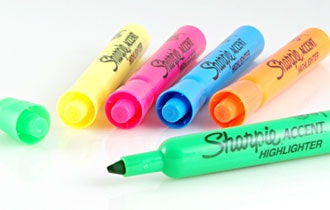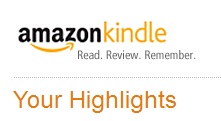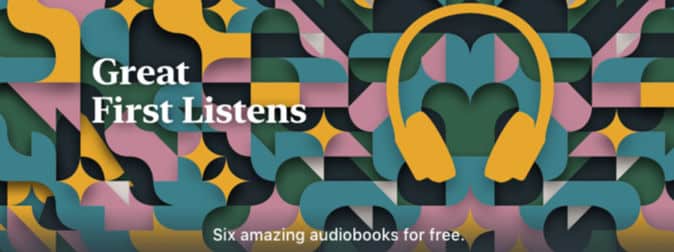If a Web Clipping Service Lost Access to Your Kindle Highlights It’s Probably Not Because of Publishers

![7634585858_6e78352a29[1]](https://the-digital-reader.com/wp-content/uploads/2012/09/7634585858_6e78352a291-250x159.jpg)
Another part of our service has been the ability to make your Kindle reading more social by importing and sharing your Kindle highlights. A few days ago, Amazon formally notified us that they believe this functionality violates their terms of service. We don’t agree with them but as a small startup, we know a few things.
Findings puts the blame on publishers, an easy target. And this complaint is echoed in some of coverage of this story, particularly at Techdirt.
It’s really quite amazing how some folks who came up through the old publishing world seem to have a near allergic reaction to new technologies that are somehow "different." You may recall the previous freakouts over text to speech, library lending of ebooks and efforts to scan physical books into ebooks. The latest horror? Highlighting. Yes, be afraid, you modern techno-wizzes. The publishing gods are afraid of your ultra-hip and modern "highlights" via the Kindle, because (*gasp*) they might be… (ominous music)… shared! Yes… I said it: shared.
I read this story a couple days ago, but since I didn’t yet know why this had happened I didn’t post about it. But this misguided post over at Techdirt inspired me to jump in and provide some context and some history.
First and foremost, this incident reminds me of when the ebook lending site Lendle was cut off by Amazon back in 2011. As you probably know, Lendle was one of several sites which offered a basic service of connecting Kindle owners so one could lend the other a Kindle ebook. The service had to suspend operations for a few days because Amazon cut them off due to some TaC violation.
At that time there was an outcry against Amazon cutting off the lending sites, and you probably read about this story in any number of major blogs. It made for good tabloid blogging, which only added to the outrage everyone felt.
Here’s the problem with the outrage: like I pointed out at the time, all the other lending sites continued to function while just the one was cut off.
Lendle was the one site cut off, and that raised the question what did they do to deserve it? A number of blogs missed that detail at the time and it is one which is applicable today.
Before getting mad at Amazon or the publishers who may have had nothing to do with Findings being cut off, I started looking for services similar to Findings to see if they could still export your notes. I found a couple and so far as I could tell they still work.
Notescraper is an AppleScript based app which pulls your kindle notes and highlights from kindle.amazon.com and lets you export them to either Evernote or OmnOutliner. I don’t have a Mac to test it with, but this one is likely still working, as are the several other ways you can extract the notes, including workarounds, a couple different web browser bookmarklets, and more..
And then there’s Buzzworthy, an Android app which lets you export or share your Kindle notes. They have not reported any downtime either. They even have a Kindle Fire version of their app which is listed in the Amazon Appstore.
So what we really have here, in terms of the context of Amazon cutting off a clippings service, is one service cut off while another is still up and running. And that is why I didn’t jump on either Amazon or the publishers.
This incident should also remind you of the lawsuit between Cengage and the digital textbook distributor Kno, another example of where knowing the back story changes the context. In that case Kno sued Cengage for trying to remove textbooks from Kno’s ebookstore over a contract violation. This incident was quite similar to the Findings incident in that it too focused on notes and highlights, with the publisher once again apparently objecting to users creating collections of highlights and notes from the textbooks.
But the Kno-Cengage lawsuit, which was peaceably resolved a couple months ago, also had at least one important detail which was never mentioned in public. The scuttlebutt among textbook publishers was that Kno had a reputation for overstepping the bounds of their contracts. From what I heard a number of publishers were unhappy about this point, just not unhappy enough to make a case out of it.
Do you see what I mean when I say we don’t know all the facts? That one detail changes the entire Kno-Cengage lawsuit from a pushy and short-sighted publisher to a possible contract violation.

The obvious conclusion here is likely the wrong one, but at the very least no one outside of Amazon or Findings really knows why this happened. For all we know Findings really did violate some rule of Amazon’s. What’s more, if you expand that possibility to include violating some unnamed drone’s interpretation of a less than clear rule, it becomes even more possible that Findings inadvertently did something wrong.
image by David Guo’s Master

Comments
SoBookOnline September 21, 2012 um 2:49 pm
Hi Nate and thanks for you clarification. Actually, the situation is similar to GoodReads (http://goo.gl/FTX7U) : Amazon has cut off his access to his metadata, pretexting that GR has not respected his rules. But we know that GoodReads was preparing an illimited access to eBooks. Just a coincidence ? I think that findings is in the same position , unlike Notescraper : it has become a troublesome competitor and "it’s possible the company is cracking down on competing services like Findings in an effort to promote its own service" (http://goo.gl/8Rvvv). ReadMill should be the next victim.
Nate Hoffelder September 22, 2012 um 11:26 pm
Yes, I forgot about Readmill. They’re still operating, too, and they have the same API access as findings. So clearly there is more going on here than meets the eye.
Is Amazon Purging eBook Promotion Newsletters? | The Digital Reader June 20, 2016 um 12:22 pm
[…] site, Lendle, for some unknown ToS violation. And then in 2012 the note-taking service Findings stopped supporting Kindle notes and highlights, ostensibly following a complaint from a […]